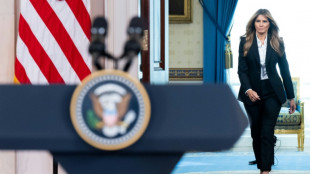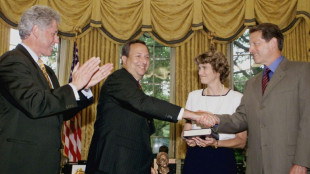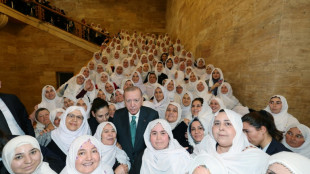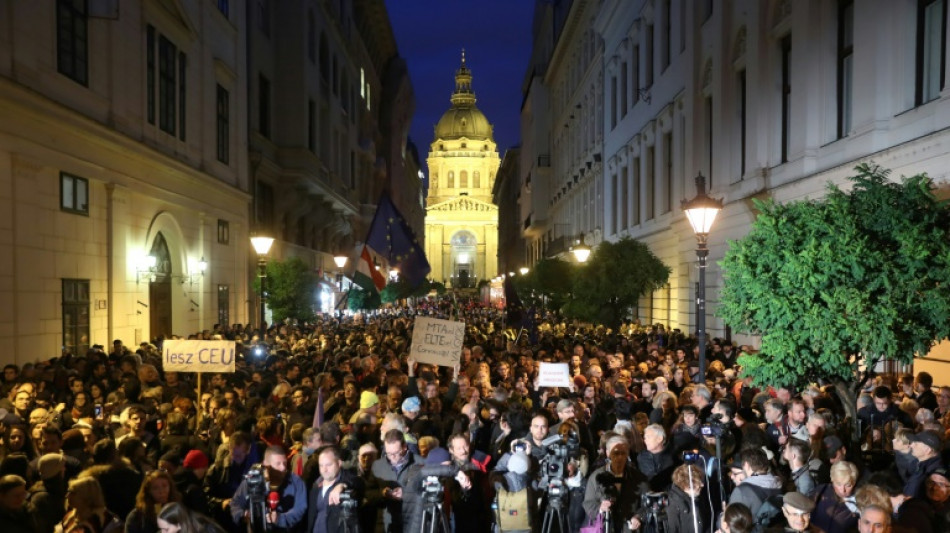
-
 Bayern and Kane gambling with house money as Gladbach come to town
Bayern and Kane gambling with house money as Gladbach come to town
-
Turkey invests in foreign legion to deliver LA Olympics gold

-
 Galthie's France blessed with unprecedented talent: Saint-Andre
Galthie's France blessed with unprecedented talent: Saint-Andre
-
Voice coach to the stars says Aussie actors nail tricky accents

-
 Rahm rejection of DP World Tour deal 'a shame' - McIlroy
Rahm rejection of DP World Tour deal 'a shame' - McIlroy
-
Israel keeps up Lebanon strikes as ground forces advance

-
 China prioritises energy and diplomacy over Iran support
China prioritises energy and diplomacy over Iran support
-
Canada PM Carney says can't rule out military participation in Iran war

-
 Verstappen says new Red Bull car gave him 'goosebumps'
Verstappen says new Red Bull car gave him 'goosebumps'
-
Swiss to vote on creating giant 'climate fund'

-
 Google to open German centre for 'AI development'
Google to open German centre for 'AI development'
-
Winter Paralympics to start with icy blast as Ukraine lead ceremony boycott

-
 Sci-fi without AI: Oscar nominated 'Arco' director prefers human touch
Sci-fi without AI: Oscar nominated 'Arco' director prefers human touch
-
Ex-guerrillas battle low support in Colombia election

-
 'She's coming back': Djokovic predicts Serena return
'She's coming back': Djokovic predicts Serena return
-
Hamilton vows 'no holding back' in his 20th Formula One season

-
 Two-thirds of Cuba, including Havana, hit by blackout
Two-thirds of Cuba, including Havana, hit by blackout
-
US sinks Iranian warship off Sri Lanka as war spreads

-
 After oil, US moves to secure access to Venezuelan minerals
After oil, US moves to secure access to Venezuelan minerals
-
Arteta hits back at Brighton criticism after Arsenal boost title bid

-
 Carrick says 'defeat hurts' after first loss as Man Utd boss
Carrick says 'defeat hurts' after first loss as Man Utd boss
-
Ecuador expels Cuba envoy, rest of mission

-
 Arsenal stretch lead at top of Premier League as Man City falter
Arsenal stretch lead at top of Premier League as Man City falter
-
Title race not over vows Guardiola after Man City held by Forest

-
 Rosenior hails 'world class' Joao Pedro after hat-trick crushes Villa
Rosenior hails 'world class' Joao Pedro after hat-trick crushes Villa
-
Brazil ratifies EU-Mercosur trade deal

-
 Real Sociedad edge rivals Athletic to reach Copa del Rey final
Real Sociedad edge rivals Athletic to reach Copa del Rey final
-
Chelsea boost top four push as Joao Pedro treble routs Villa

-
 Leverkusen sink Hamburg to keep in touch with top four
Leverkusen sink Hamburg to keep in touch with top four
-
Love match: WTA No. 1 Sabalenka announces engagement

-
 Man City falter as Premier League leaders Arsenal go seven points clear
Man City falter as Premier League leaders Arsenal go seven points clear
-
Man City title bid rocked by Forest draw

-
 Defending champ Draper ready to ramp up return at Indian Wells
Defending champ Draper ready to ramp up return at Indian Wells
-
Arsenal extend lead in title race after Saka sinks Brighton

-
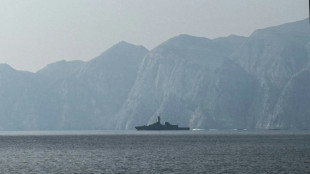 US, European stocks rise as oil prices steady; Asian indexes tumble
US, European stocks rise as oil prices steady; Asian indexes tumble
-
Trump rates Iran war as '15 out of 10'
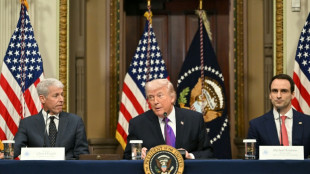
-
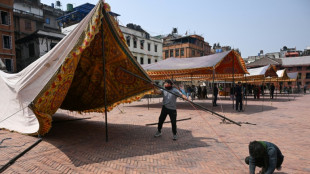 Nepal votes in key post-uprising polls
Nepal votes in key post-uprising polls
-
US Fed warns 'economic uncertainty' weighing on consumers
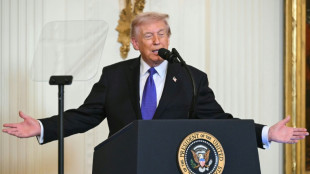
-
 Florida family sues Google after AI chatbot allegedly coached suicide
Florida family sues Google after AI chatbot allegedly coached suicide
-
Alcaraz unbeaten run under threat from Sinner, Djokovic at Indian Wells
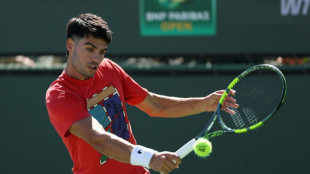
-
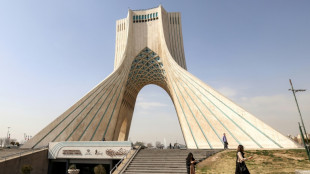 Iran's supreme leader gone, but opposition still at war with itself
Iran's supreme leader gone, but opposition still at war with itself
-
Mideast war rekindles European fears over soaring gas prices
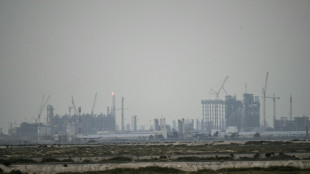
-
 'Miracle to walk' says golfer after lift shaft fall
'Miracle to walk' says golfer after lift shaft fall
-
'Nothing is working': Gulf travel turmoil hits Berlin tourism fair
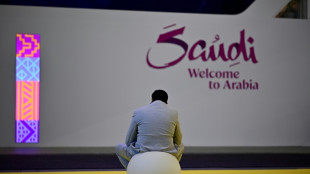
-
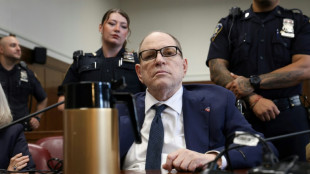 Harvey Weinstein rape retrial to start April 14: publicist
Harvey Weinstein rape retrial to start April 14: publicist
-
No choke but 'walloping', South Africa coach says of T20 flop
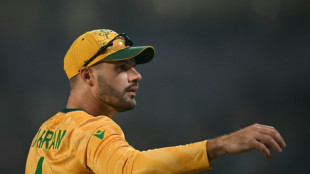
-
 Bayer gets preliminary approval for weedkiller class settlement
Bayer gets preliminary approval for weedkiller class settlement
-
Russia to free two Hungarian-Ukrainian POWs, Putin says
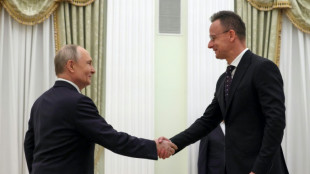
-
 Michelangelo's works hidden in 'secret room', researcher says
Michelangelo's works hidden in 'secret room', researcher says
-
Adidas shares slump on outlook, Mideast war casts shadow
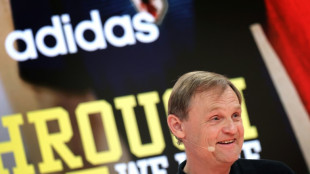

Academic freedom declining globally, index finds
Just one in three people live a nation that guarantees the independence of universities and research, according to an annual index warning that academic freedom is declining worldwide, particularly in Russia, China and India.
Attacks on freedom of expression, interference at universities and the imprisonment of researchers are just some ways that "academic freedom globally is under threat," the index said.
The Academic Freedom Index -- based on input from more than 2,300 experts in 179 countries -- was published last month as part of a report on democracy by the V-Dem Institute at Sweden's University of Gothenburg.
It measures changes in higher education and research over the last half century by looking at five different indicators: freedom of research and teaching; of academic exchange; of academic and cultural expression; of institutional autonomy and campus integrity.
Katrin Kinzelbach, professor at Germany's University of Erlangen-Nuremberg and one of the organisers of the index, told AFP that 171 states have ratified a human rights treaty which commits them to respect the freedom of scientific research.
But because of recent "significant deteriorations" in countries with large populations, "only every third person in the world today lives in a country where research and higher education enjoys a high degree of freedom," she said.
Accounting for the world's growing population, the proportion of people living in nations with academic freedom is comparable to 1973, she added.
"Now, 45.5 percent of the world's population -- 3.6 billion people -- live in 27 countries where academic freedom is completely restricted," the report said.
- 'From bad to worse' -
Significant declines were particularly seen in India, China and Russia -- the first, second and ninth most populous nations -- which Kinzelbach called "clear examples of autocratisation".
"Academic freedom has fallen dramatically" in India since Prime Minister Narendra Modi took power in 2014, she said.
Kinzelbach cited the example of British-Indian academic Nitasha Kaul, a politics professor at the UK's University of Westminster denied entry to India for a conference last month.
In Russia and China, "academic freedom was never great, and it has now deteriorated from bad to worse," Kinzelbach said.
Perhaps more surprisingly, the index found academic freedom had also fallen in the United States since 2019, which Kinzelbach called "a shock for many academics".
She emphasised both society and the political system in the US were "highly polarised".
"University campuses have become arenas where this polarisation unfolds," she said, calling for "calm, evidence-based debates on campus -- including about highly divisive issues."
Most European countries had very high academic freedom according to the index, with Hungary scoring the lowest rate followed by Poland.
However Kinzelbach said Poland's score will likely improve under the new government of Prime Minister Donald Tusk.
L.Meier--VB

